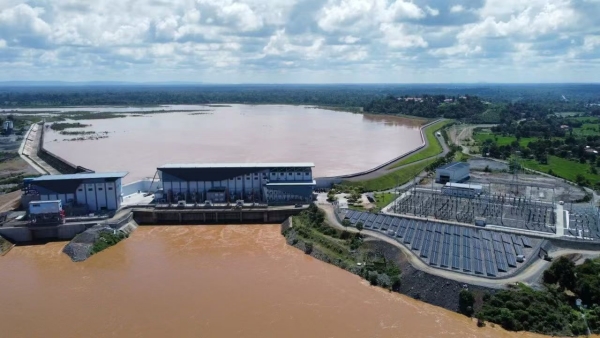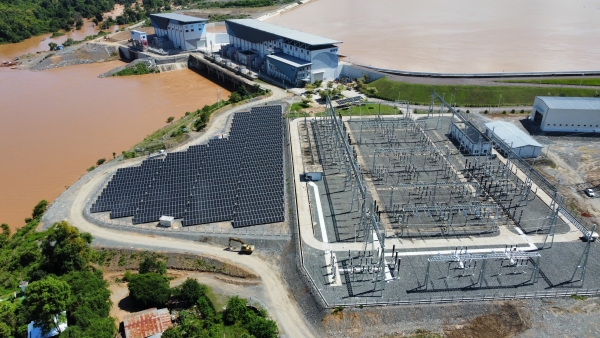The Don Sahong Hydropower Station in Laos has reached a cumulative power generation milestone of 10 billion kilowatt-hours, with annual output exceeding 1.7 billion kWh this year, according to the Power Construction Corporation of China (PowerChina).

Laos’ Don Sahong Hydropower Station reaches a cumulative power generation milestone of 10 billion kilowatt-hours. [Photo/sasac.gov.cn]
Located on the Mekong River in Champasak Province, about 150 kilometers east of Pakse and near the Lao-Cambodian border, Don Sahong Hydropower Station features a concrete gravity dam built to international standards. With a total installed capacity of 325 megawatts, it stands as the largest single bulb-turbine power station in Asia and the second largest globally.
The station has five hydroelectric turbine generators, and has operated smoothly and safely since four units began operating in October 2019. The fifth unit was put into commercial operation in July this year.
During this year’s heavy rainfall season, the project team proactively addressed potential risks by conducting thorough inspections and implementing a zero-tolerance approach to ensure comprehensive risk mitigation along the Mekong River. They closely monitored upstream river inflows and outflows, coordinated with the Lao grid’s dispatch departments, optimized operational controls and maintained efficient power generation.

Located on the Mekong River in Champasak Province, Don Sahong Hydropower Station features a concrete gravity dam built to international standards. [Photo/sasac.gov.cn]
As one of the ASEAN countries with the richest hydropower resources, Laos is leveraging the Don Sahong Hydropower Station to maximize sustainable energy output. The station’s reliable and efficient operations align with Laos’ commitment to global green, low-carbon development and support renewable energy initiatives.
This has not only enabled Laos to export electricity to Cambodia but has also reinforced the country’s strategy to improve energy accessibility in the region, bolster green development and contribute to its goal of becoming the “Battery of Southeast Asia”, a key driver for economic and social development.
(Executive editor: Zhu Zeya)